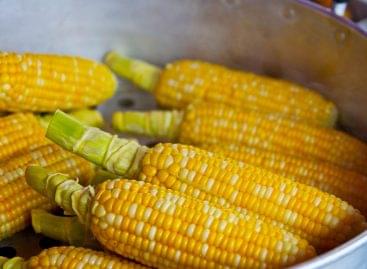FAO: Food safety is everyone’s business
Without universal access to safe food, the 2030 Agenda will be impossible to reach. Already, an estimated 600 million people each year fall sick from eating food contaminated with bacteria, viruses, toxins or chemicals – and 420 000 of them die. When food is not safe, children cannot learn and adults cannot work. In other words, a lack of access to safe food inhibits human development.

To highlight the crucial role of safe food in promoting health and ending hunger, the first ever World Food Safety Day (WFSD) will be celebrated on 7 June 2019. Its goal is to draw attention and inspire action to help prevent, detect and manage foodborne risks, thereby contributing to food security, human health, economic prosperity, agriculture, market access, tourism and sustainable development.
If you produce, process, sell or prepare food, then you have a role in keeping it safe. Here are five ways in which we can make a sustained difference in food safety:
1. Ensure food is safe
National governments are critical in guaranteeing food is safe and nutritious for all. And they have good reason to – according to the World Bank, unsafe food costs low-and middle-income economies alone about US$95 billion in lost productivity annually. To help lower this number, policy-makers can promote sustainable agriculture and food systems, fostering collaboration among public health, animal health, agriculture and other sectors. Countries can also comply with international standards established by the Codex Alimentarius Commission.
2. Grow food safely
To ensure a sufficient supply of safe food at the global level while also minimizing their environmental impact and adapting to climate change, food producers need to adopt good practices. As food production systems transform and adapt to changing conditions, farmers must carefully consider optimal ways to address potential risks and ensure that food is safe. Integrating the health of plants and animals, for example, can help discourage antimicrobial resistance and cut down on the 700 000 people worldwide who die from antimicrobial-resistant infections each year.
Ensuring food safety must happen at every step of the value chain – from producers to vendors to consumers. Left: ©Edmund Lowe Photography/Shutterstock.com Right: ©Dusan Petkovic/Shutterstock.com
3. Keep food safe
For business operators, preventive controls can address most food safety problems. Everyone involved in food operations – from processing to retail – must ensure compliance with programmes like HACCP, a system that identifies, evaluates and controls for significant food-safety hazards. Beyond reducing the possibility of sickness, good practices for processing, storage and preservation can also cut post-harvest losses and help food retain its nutritional value – as well as help business maximize their participation in a US$1.6 trillion global food trade.
4. Check that food is safe
Consumers have the power to demand safe and healthy food. Given the complexity of food safety, consumers need access to timely, clear and reliable information about the nutritional and disease risks associated with their food choices. Investments in educating consumers about food safety has the potential to reduce foodborne disease and return savings of up to ten times each dollar invested. Consumers need to be empowered to make healthy food choices for themselves and support sustainable food systems for the planet.
5. Team up for safety
Ultimately, food safety is a shared responsibility. Governments, regional economic bodies, UN organizations, development agencies, trade organizations, consumer and producer groups, academic and research institutions and private sector entities must all work together on issues that affect us. Collaboration is needed globally, regionally and locally – across sectors within a government and across borders when combatting outbreaks of foodborne illness globally.
Food safety is fundamental to promoting health and eradicating hunger – and could save the lives of up to 420 000 people each year ©WAYHOME studio/Shutterstock.com
Ultimately, safe food is critical not only to better health and food security, but also for livelihoods, economic development, trade and the international reputation of every country. Foodborne diseases impede socioeconomic development by straining health care systems, and harming national economies, tourism and trade.
A #ZeroHunger world can only be achieved if the food consumed is safe. This World Food Safety Day, and every day, let’s be grateful for the safe food we have – and take action to make sure food safety is everyone’s business.
Related news
FAO food price index falls for five months
🎧 Hallgasd a cikket: Lejátszás Szünet Folytatás Leállítás Nyelv: Auto…
Read more >Related news
Year-round consumer protection inspections – focus on examining discount prices and detecting customer deception
🎧 Hallgasd a cikket: Lejátszás Szünet Folytatás Leállítás Nyelv: Auto…
Read more >








